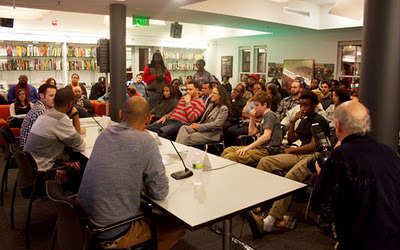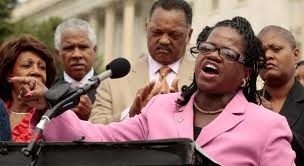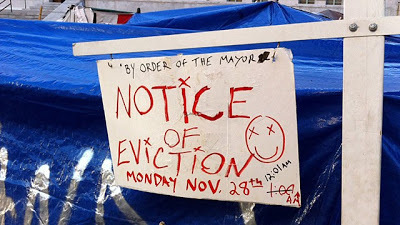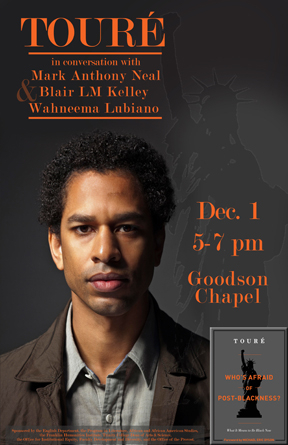Mark Anthony Neal's Blog, page 1042
November 30, 2011
Hip-Hop and the Academy: 9th Wonder at Harvard

Harvard University HipHop Archive Hosts 9th Wonder by Kendra Graves | Bay State Banner
As he introduced a man he said he'd been blessed to call both colleague and friend for the last few years, noted African American studies scholar Dr. Mark Anthony Neal recalled his first time meeting hip hop producer 9th Wonder.
"We're just sitting there, waiting for our [radio interview] to get started, and we start talking about our kids and parenting. And 9th Wonder starts talking about going to school conferences and open houses and [other] parents looking him up and down like, 'So what do you do for a living?' [And he tells them], 'I'm a hip hop producer.' And they're confused, right? And he said to me, 'Somehow, [people think that] because you're a hip hop producer, you're not supposed to be involved with raising your kids," said Dr. Neal. "At that moment, I knew this was a special cat."
Indeed, Patrick Douthit, known by most as 9th Wonder, is much more than just a hip hop producer. He's a husband, a father, CEO of his own record label, member of the Universal Zulu Nation, an NAACP ambassador and a college professor.
And yet, for 9th Wonder, hip hop is where it all started; it's the axis around which his innovative, multifaceted career has rotated for years.
Since registering on rap music radars in the early 2000s, the musician has worked with some of hip hop and soul music's biggest stars, including Jay-Z, Erykah Badu, Destiny's Child, De La Soul and Mary J. Blige. He now guides the careers of more than a dozen artists and producers signed to his Jamla/IWWMG record label.
For the Grammy Award-winner, the last decade has been full of earnest effort to strike the ultimate balance between beats, rhymes and life.
It made sense then that Harvard University's Hip Hop Archive would choose the beatmaker to kick off their new "Cutting Edge" series, which Archive Director Dr. Marcyliena Morgan described as an opportunity for hip hop students and fans to learn from artists. She said, "… work makes us feel and makes us think about who we are, where we're going and where we want to be."
Scenes of 9th spinning old soul records and pounding the keys of his beat machines during studio sessions are mixed with clips with of the producer thoughtfully reflecting on his personal and professional evolution; humbly accepting the praises of hip hop heavyweights like DJ Premier and Drake; spending time with his two daughters, and teaching 20- something Duke students how to sample a record.
As the documentary unveils how 9th discovered and honed his talent, it pays particular attention the role education played in helping him determine his path and values as a young man.
He talks about the impact a college prep program for local African American youth had on his appreciation for learning, and how 80s television programs like "The Cosby Show" and "A Different World" suddenly made it cool to be young, gifted and black again, an idea that helped to redefine how his generation — the hip hop generation — engaged with education.
Though he enrolled at North Carolina Central to study music, in the film, he notes that he always wanted to be a history teacher. Almost 20 years later, things have come full circle. After a three-year stint as an artist in residence at North Carolina Central, where he taught hip hop history, he's now co-teaching a course with Dr. Neal titled "Sampling Soul," where students explore the history and art of soul music and music sampling.
Even before becoming a Duke professor, teaching the next generation the ins and outs of the industry was always one of 9th's career goals.
"That's been my fight, to get in the classroom to really tell people exactly what hip hop is, and especially from the artists' standpoint," he said. "There's really not a Ph.D. in hip hop music; you have to live it and grow up with it to really know how to teach [it]."
When the film ended, the beatmaker continued to drop jewels about the importance of creating opportunities for people to learn about — and through — hip hop. He was especially concerned about helping today's youth cultivate a basic knowledge of hip hop, something he said they often lack because the music is such a prevalant part of their lives.
"When it comes to hip hop, we expect the younger generation to know things that they really don't understand," he pointed out. "Although they listen to hip hop, it's everywhere for them — it's like water for them. You have to teach [today's youth about] the first generation of hip hop all over again."
"A lot of these kids getting in the game, their only frame of reference is Black Entertainment Television. There's nothing on television except these images that are portrayed, so a lot of these kids go into the game with lofty expectations," he continued. "We have enough music from our generation that can offset [those] images — we just need to expose them to it."
He also reminded the audience that even young children can use hip hop as a learning tool. "We forget that everything taught to us in elementary school was taught in a cadence," 9th said. "I think what we can use from hip hop [to teach children] is saying things in [a] rhythm."
And though some might be reluctant to introduce elements of hip hop into a child's curriculum, 9th pointed out that in this case, the ends (hip hop) justify the means (learning). "Trust me, if you teach a kid how to do something, the parent's going to be happy no matter how you taught them. And if hip hop is it, it's it."
Still, he wouldn't think of passing on hip hop's history without paying dues to the elders that paved the way. And yet, he respectfully expressed his disappointment in the older generation's refusal to support or acknowledge hip hop as a universal musical and cultural force.
"We got a lot of older people out there that frown upon what we do, and it's been the problem. The civil rights folks didn't pass the torch to the hip hop generation, and I don't want to repeat that process," he insisted.
"I'm trying to tell them that you're living on through us. If we sample a record, we're giving new life to the person that we sampled. We're the bridge, man."
Published on November 30, 2011 11:46
Home of Barbara Arnwine, Civil Rights Lawyer, Raided By Police

Barbara Arnwine, Civil Rights Lawyer, Has Home Raided By Police | HuffPost BlackVoices
A civil rights lawyer said she is outraged and is sharing her story with the media, after her Maryland home was raided by police shortly before Thanksgiving.
Barbara Arnwine, the executive director of the Lawyers' Committee for Civil Rights Under Law, said her Prince George County home was raided by a SWAT team and other law enforcement the morning of Nov. 21, Politic365.com reports.
"They held us at gunpoint for three hours," Arnwine told Rev. Al Sharpton and Rev. Jesse Jackson, Sr. on Sharpton's radio show "Keepin' It Real." "There is no justification for them operating like this. It's totally unprofessional and unjustified."
Arnwine is a well known attorney, and one of the leaders of groups in opposition of Voter ID laws. On Nov. 14, she spoke out about the effects of voter suppression laws on the minority community along with members of the U.S. House of Representatives and Laura W. Murphy, director of the American Civil Liberties Union.
The SWAT team arrived at her home at 5:30 a.m., disturbing the attorney and her family members, including an 80-year-old relative, Arnwine said. They also did not seem to have a warrant and asked for the name of the homeowner and how to spell that name.
"If they had a warrant and were targeting any of us then how could they not know our names and know how to spell them," Arnwine said to D.C radio station's WPFW news anchor Askia Muhammad. "It looks like they were randomly looking, like they were on a fishing expedition. I honestly think they were looking for someone else. I honestly think they had the wrong address. I don't think they had the right house but I'll never know because I never saw a warrant."
She told Muhammad that the president was aware of the incident, and that a press conference is being planned, according to Politic365.com.
"President Obama has heard about it and has e-mailed people asking 'What in the world is this?'"
About Barbara Arnwine
Barbara R. Arnwine, Executive Director of the Lawyers' Committee for Civil Rights Under Law since 1989, is internationally renowned for contributions on critical justice issues including the passage of the landmark Civil Rights Act of 1991. A graduate of Scripps College and Duke University School of Law, she continues to champion civil rights issues nationally and internationally in the areas of housing, fair lending, community development, employment, voting, education, environmental justice and more. A prominent leader in the civil rights community, Ms. Arnwine also continues to fight for the preservation of affirmative action and diversity programs.
Published on November 30, 2011 07:33
November 29, 2011
46 Decembers | Dave Hollister "Never Gonna Change"
Always reminder of the people and places that Birthed me--MAN
Published on November 29, 2011 14:24
November 28, 2011
The Resistance: Bronx Students Release 10-Point List of Demands to Reform NY Public Education
From Colorlines.com:
We demand free quality education as a right guaranteed by the US Constitution.We demand the dismantling of Bloomberg's Panel for Educational Policy. We demand a new 13 member community board to run our public schools (comprised of parents, educators, education experts, community members, and a minimum of 5 student representatives).We demand quality instruction. Teachers should ethnically, culturally, and racially reflect the student body. We demand experienced teachers who have a history of teaching students well. Teacher training should be intensive and include an apprenticeship with master teachers as well as experiences with the communities where the school is located.We demand stronger extra-curricular activities to help stimulate and spark interest in students. Students should have options, opportunities, and choice in their education.We demand a healthy, safe environment that does not expect our failure or anticipate our criminality. We demand a school culture that acknowledges our humanity (free of metal detectors, untrained and underpaid security guards, and abusive tactics).We demand that all NYC public school communities foster structured and programmatic community building so that students, teachers, and staff learn in an environment that is respectful and safe for all.We demand small classes. Class sizes should be humane and productive. We demand that the student to teacher ratio for a mainstream classroom should be no more than 15:1.We demand student assessments and evaluations that reflect the variety of ways that we learn and think (portfolio assessments, thesis defenses, anecdotal evaluations, written exams). Student success should not depend solely on high stakes testing.We demand a stop to the attack on our schools. If a school is deemed "failing", we demand a team of qualified and diverse experts to assess how such schools can improve and the resources to improve them.We demand fiscal equity for NYC public schools: as stated in the Education Budget and Reform Act of 2007 by the NYS Legislature, NYC public schools have been inadequately and inequitably funded. We demand the legislatively mandated $7 billion dollars in increased annual state education aid to be delivered to our schools now!
Published on November 28, 2011 19:35
Why Occupy Movements Unattached to Any Political Party Are The Only Hope for Real Change

Why Occupy Movements Unattached to AnyPolitical Party Are The Only Hope for Real Change by Mark Naison | special to NewBlackman
Now that Occupy Movements are being evicted frompublic parks in cities throughout the country, almost invariably by Democraticmayors, many Democratic Party organizes and some labor activists are hoping themovement will fade away and concentrate its energies on electing progressivecandidates for office and putting forth a progressive political agenda.
In my opinion, that would be a gravemistake. There are a bevy of important issues that given currentpolitical alignments, and the power of money in American politics, cannotbe translated into a viable legislative agenda. It will take years of disruptiveprotest- strikes, boycotts, walkouts, sit ins and occupations- to place them onthe national agenda and the only force in American society capable of employing those tactics for a sustained period is the Occupy movement.
Here are some key issues that neither party iswilling to take on that the Occupy movement can influence if it keeps growingand becoming more diverse in the next five years.
1. The student loan crisis and the escalatingcost of a college education. There is no way, without major disruptions ofuniversity life, and pressure on the banks, that student loan debt can beerased, or significantly reduced, and tuition at public colleges frozen orlowered. Until universities cannot carry on their normal business withoutmaking dramatic changes in loan collections and tuition charges, you can besure elected officials won't touch these issues with a ten foot pole.
2. The legalization of drugs and the release ofnon-violent drug offenders from the nation's prisons. Given the powerful interestsfighting any dismantling of the prison industrial complex-ranging from prisonguards unions, to elected officials in communities where prisons are located,to corporations who benefit from cheap prison labor, it will require massivesocial movements, to force states, localities, and eventually the federalgovernment, to end the irrational arrest and imprisonment of people who selldrugs no more dangerous than alcohol or prescription medications.
3. The dismantling of a domestic police stateapparatus which uses advanced weaponry and intrusive surveillance technology tosuppress dissent and control and intimidate minority and working class youth. The weapons that were used against Occupy demonstrators in Oakland, atZuccotti Park and at UC Davis have been used for many years against minorityyouth to prevent them from inhibiting the gentrification and re-segregation ofAmerican societies and to assure order in schools and communities stripped ofresources. Libertarians, civil rights organizations, and a growing Occupymovement can create an alliance to undermine the domestic policestate. The two major parties will never do it without immense outside pressure.
4. A moratorium on foreclosures andthe passage of legislation to allow arts groups, youth groups, affordablehousing organizations and advocates for the homeless to occupy abandonedcommercial and residential space in America's towns and cities. Such actionswill only be taken if Occupy groups and their allies make foreclosures difficult,and begin occupying abovementioned properties in such numbers that it will becounterproductive for authorities to evict them. There is no way electedofficials will take such steps without being presented with a "fait accompli"by protesters.
5. A radical reformation of the tax system thatplaces the burden of taxation on the 1 Percent and reduces taxes on individualsand small businesses. There is no way, given current politicalalignments, and the vast power of corporate and Wall Street lobbies, thatthat such a revolution in the tax code could be legislated. But five more yearsof disruptive protest could change that Occupy movements have to create ascenario where the only path to restoring social order would be a revision ofthe tax burden to benefit ordinary citizens
These five policy areas are hardly the only oneswhich would require years of protest to attain-I am sure people reading thiscould identify issues in education, environmental protection, job creation andUS military policy that would require movements of equal force to implement
But I have identified these five areas to showhow far away we are from any real political change in this country through thetwo major parties We need grass roots social movements of such force thatit will reinvent what is possible in mainstream American politics. The Occupymovements have started such a process. It would be a shame if they prematurelyembraced the electoral process rather than pushing protests activity to muchhigher levels.
***
MarkNaison is a Professor of African-American Studies and History at FordhamUniversity and Director of Fordham's Urban Studies Program. He is the author oftwo books, Communists in Harlem Duringthe Depression and White Boy: AMemoir. Naison is also co-director of the BronxAfrican American History Project (BAAHP). Research from the BAAHP will bepublished in a forthcoming collection of oral histories Before the Fires: An Oral History of African American Life From the1930's to the 1960's.
Published on November 28, 2011 19:29
Left of Black S2:E12 | The Tanning of America and the Branding of Hip-Hop
Left of Black S2:E12 TheTanning of America and the Branding of Hip-Hop w/Steve Stoute November 28, 2011
Left of Black host and Duke University Professor Mark Anthony Neal is joined by SteveStoute, author of TheTanning of America - How Hip-Hop Created a Culture That Rewrote the Rules ofthe New Economy and founder and chief creative officerof Translation Consultation + BrandImaging. Neal and Stoute discuss Hip-Hop Culture'sascent into the mainstream as well as signature advertising campaigns that heworked on for McDonald's ("I'm Lovin' It") and Hewlett-Packard ("Hands"). Finally Stoute suggests ways thatPresident Barack Obama might re-brand himself for the 2012 election.
The conversation was recorded with a livestudio audience on October 19, 2011 at the John Hope Franklin Center.
***
Left ofBlack is a weekly Webcast hosted byMark Anthony Neal and produced in collaboration with the John Hope Franklin Center at DukeUniversity.
***
Episodesof Left of Black are also available for download @ iTunes U :
Published on November 28, 2011 18:11
Atelier@Duke: A Conversation with Touré – Who's Afraid of Post-Blackness

Atelier@Duke A Conversation with Touré – Who'sAfraid of Post-Blackness
Duke UniversityGoodsonChapel [Divinity School]
December 1, 20115:00pm
Aconversation with Touré—American novelist, essayist, music journalist, culturalcritic, and television personality based in New York City based on his book Who'sAfraid of Post Blackness? joined by Duke faculty Mark Anthony Neal and WahneemaLubiano, and North Carolina State University Historian Blair LM Kelley; Moderated by Duke Professor Maurice O. Wallace.
Published on November 28, 2011 07:34
November 27, 2011
46 Decembers | Simply Red: "Holding Back the Years"
One of my favorites, as it always reminds me of more youthful days and the man that I hoped to be twenty-five years ago.
Published on November 27, 2011 18:44
Simply Red: "Holding Back the Years"
One of my favorites, as it always reminds me of more youthful days and the man that I hoped to be twenty-five years ago.
Published on November 27, 2011 18:44
Mark Anthony Neal's Blog
- Mark Anthony Neal's profile
- 30 followers
Mark Anthony Neal isn't a Goodreads Author
(yet),
but they
do have a blog,
so here are some recent posts imported from
their feed.



